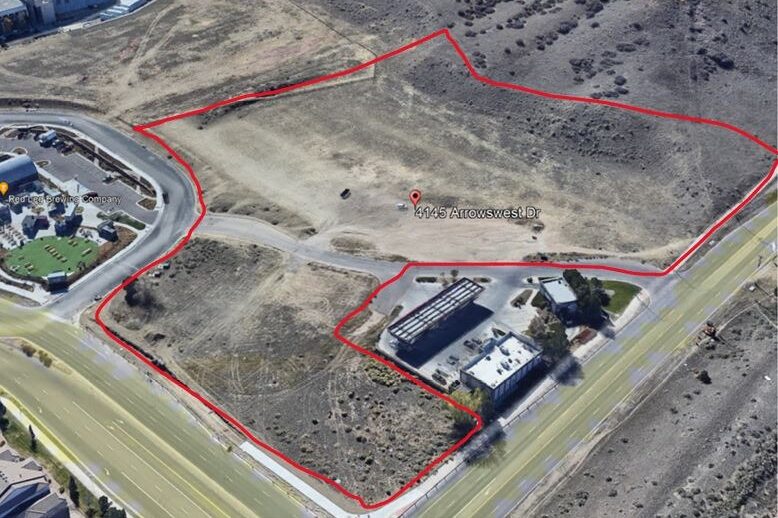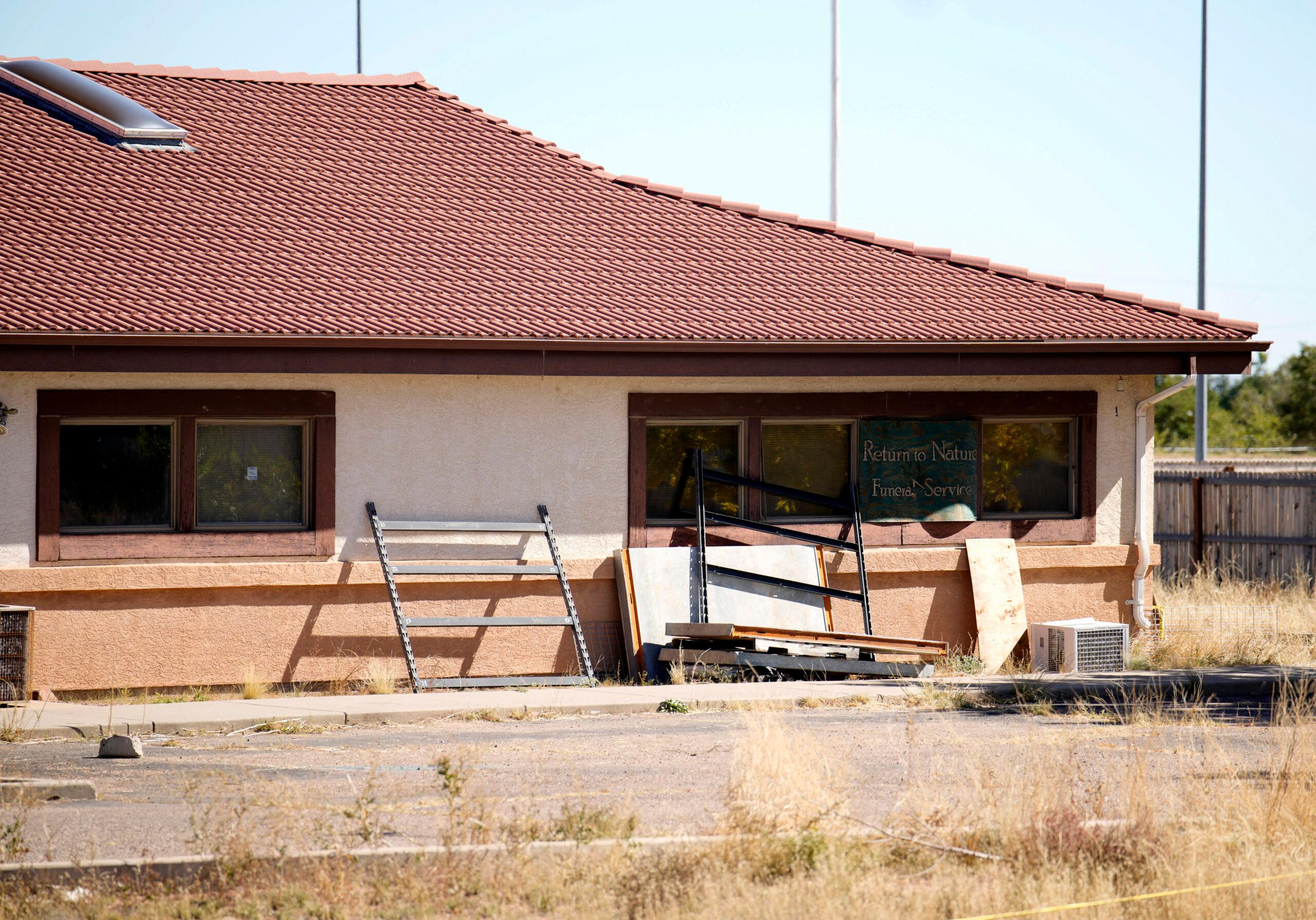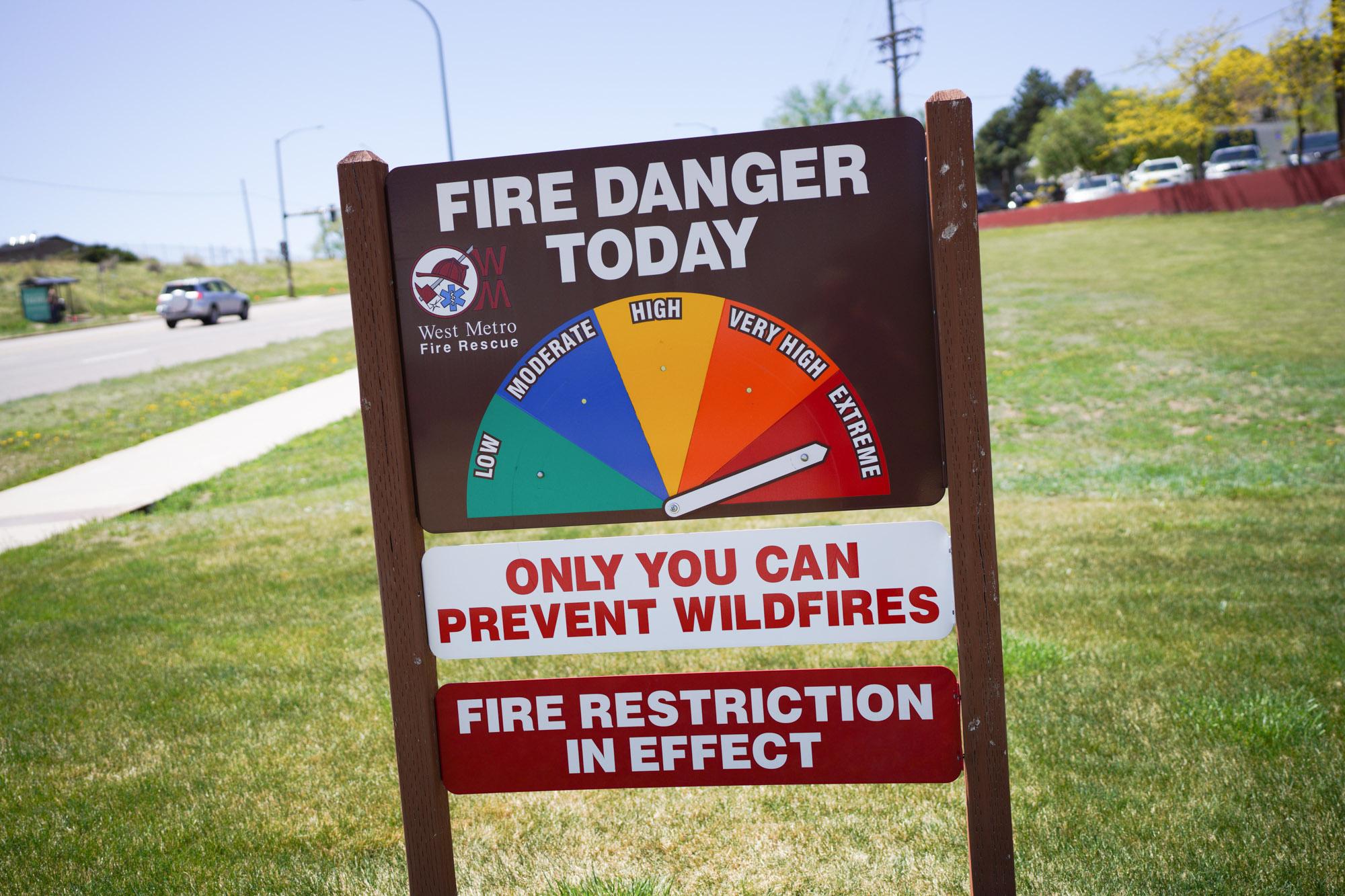Soldiers who witnessed atrocities in Iraq are bringing that violence home with them. That’s the subject of a recent book by David Philipps, a reporter for the Colorado Springs Gazette and the author of "Lethal Warriors: When the New Band of Brothers Came Home." "Lethal Warriors" follows the soldiers of Fort Carson's Charlie Company from combat in Iraq to troubled and often-violent civilian lives when they return. Some even end up in prison for murder. Philipps talks with Ryan Warner in this final installment of our series "Iraq War Stories." (First aired Dec. 15, 2010)
Here's a transcript of Ryan Warner's interview with author David Philipps:
Warner:This is Colorado Matters. I’m Ryan Warner and you’re tuned to Colorado Public Radio.
Soldiers who witnessed horrors in Iraq sometimes bring that violence home with them. It’s like they have trouble turning off the switch. One day they’re in a firefight and not long after they’re back in the states trying to lead normal lives.
There’s a new book about this. It’s called “Lethal Warriors” and the author is David Philipps. He’s a reporter for the Colorado Springs Gazette.
The Springs is a military town. It’s had to deal with this firsthand and there’s a scene in the book, it’s the fall of 2005, an Iraq veteran from Fort Carson walks into the mayor’s office with a warning.
David Phillips: Guys are coming home really messed up, with PTSD and all sorts of other things, and the hospital at Fort Carson that is supposed to be helping is vastly understaffed and so what you’re going to have is you’re going to see a wave of divorce, of crime, of child abuse and maybe even some murder.
Well, in the 12 months that followed, after being steady for years, the rates of crime at Fort Carson increased 65 percent. The number of rapes on post doubled and then tripled again by 2008 and slowly soldiers started to be arrested for murder.
Warner: In this new book, David Philipps traces a lot of the violence back to one Army unit, Charlie Company. Philipps is with us as we wrap up our series, Iraq War Stories. David, welcome to Colorado Matters.
Philipps: Thanks for having me.
Warner: How did you first come across the men of Charlie Company?
Philipps: Colorado Springs is my hometown and I was lucky enough to go to work for my hometown newspaper, having what I thought was a dream job. I was the guy whose job it was when the snow was really, really good to go skiing and write about it. I was the outdoor recreation reporter.
My job was to enjoy the Rockies, but something happened as the wars in Iraq and Afghanistan continued and that was that Colorado Springs started to have a lot of murders coming out of Fort Carson and at the newspaper we would report on these murders, of course. That’s just sort of the bread and butter of what newspapers do.
But we weren’t getting to the story behind the story and since it was my hometown and I had grown up around military families my whole life, I had never seen this, I wanted to know why. What had happened that was causing all of this.
And so between stories about the outdoors, I started looking into it. And what turned out is that the vast majority of these crimes were coming out of one infantry battalion. And it wasn’t just any infantry battalion. It was an infantry battalion that had been sent to Iraq and been sent to the very worst place in all of Iraq and had taken casualties at more than double the rate average.
And then they had been-- come home to, essentially, a broken system that was supposed to take care of them, but didn’t. And rather than getting any care, they were basically told, hey, we don’t have time to deal with problems now, whether it’s depression, PTSD, whatever it is, because we’ve got to go back to Iraq in 12 months. And then, once again, they went back to the very worst place in Iraq and, again, took casualties at a much higher rate.
And then when they came back, a lot of these guys were so broken and warped by what they had seen and done that it really wasn’t surprising after hearing their stories that murder was the outcome.
Warner: We’ll talk more about their return to Colorado Springs in this conversation, but let’s discuss their service in Iraq. You say they saw some of the worst of the combat, really. What does that mean?
Philipps: It’s confusing to a lot of people in the United States that there is something that we could call the worst combat in Iraq, because we just don’t see the casualty numbers that we saw in Vietnam or, certainly, World War II, but that hides a viciousness that is really new to these conflicts.
In World War II, if you were wounded in battle, you had a one in four chance of dying of your wounds. In Vietnam, it had improved somewhat so that it was in three. Now, because of much better medical care, it’s something like one in 20.
And beyond that, because of armored vehicles and body armor, there are a lot of people who are never officially getting wounded in the first place, but if you talk to some of these guys about what they’re experiencing, they may be going through combat that would have vaporized a platoon, you know, a generation before and they’re coming out of it with no official wounds.
You know, most of the guys I spoke to, people I tracked down in prison or, a lot of times, living in their parents’ basements or wherever they had washed up after these deployments, they had been hit by pretty serious roadside bombs, multiple times, and yet, officially, they had never been injured.
Warner: But at the same time, also seeing really grisly attacks that you survive?
Philipps: Right. One of the key moments that I tried to document in “Lethal Warriors” was a day where this group of guys, most of whom are 19, 20 years old had been assigned to set up a checkpoint on a highway they called Route Michigan. And you can picture it looking exactly like I-25, two lanes, divided modern highway.
And just as they were setting up in a busy area, where there are lots of civilians around, a car bomb sped in, crashed right into one of their Humvees and exploded. Several people were killed. Several people were wounded in really ugly ways. A lot of civilians were left dead on the road.
And these 19-, 20-year-old guys, in a case like that, they have no way to respond. There’s no one to fire back against. There’s no obvious enemy force that you can go after. And so when that happens day after day you feel totally helpless and you also start to question, you know, who are you trying to protect and are they the same people who are trying to kill you?
Warner: You write that in these instances that lack of a clear target, that lack of a specific enemy leads to something called the death blossom. The death blossom was a way that these guys would react when there was no clear way to react. And that was, if you were hit by an IED or sniper fire and you didn’t see where it came from, the standard, if unofficial, operating procedure was for everybody to point their guns in every direction and shoot at anything that moved.
Phillips: You know, and when I talk to soldiers about this and it was soldiers from different platoons all over this battalion, they would say, well, you know, if someone was in the area, they probably had something to do with it.
Warner: Does that mean innocents get killed and maybe even soldiers know it?
Philipps: Yeah. I think it happens all the time. One of the most shocking instances of it was this platoon I talked to, one of their soldiers got shot by a sniper walking across a field and this was a field in a little village outside of Ramadi, that’s primarily farms. And so when this guy got shot and killed, of course, the platoon’s very angry and they don’t see anybody around. They don’t see the sniper, but they just start shooting.
And in this case, shooting didn’t just mean rifles and machine guns, it meant that they brought in two Bradley fighting vehicles, which is essentially a small tank with a gun on top of it that can shoot several hundred exploding grenade-type bullets per minute. And both of those tanks came in and unloaded hundreds and hundreds of these grenade-type bullets on this village, you know, leveling buildings.
One of the soldiers who told me this story years later, I paused after he told me it and I said, how many people did you kill? And he said, “I don’t know, but we leveled that place, totally.”
And that’s a story that there’s no record of that happening. There’s no investigation of that happening. There’s just the soldiers who were on the ground who know it happens, because they did it. There’s a whole war out there that the United States knows nothing about.
Warner: You’re listening to Colorado Matters. I’m Ryan Warner and the subtitle of David Philipps’ new book, “Lethal Warriors,” is “Uncovering the Tragic Reality of PTSD.” Philipps is a writer for the Colorado Springs Gazette and his book is about a group of soldiers who served in Iraq in a very bloody time and in very bloody places and how they bring that home with them, mentally. It leads to, really, an increase in the murder rate and acts of violence back in Colorado Springs.
When the men of Charlie Company returned to Colorado Springs after two tours of duty under the stresses that you have described, what is life like for them?
Philipps: You know, I don’t want to paint them all as in one broad brush. Some were able to come home to strong family support and readjust to civilian life, as strange as it might have been to them. Others really started to self-destruct and I talked to one soldier after another who all sort of did the same thing.
They had brought home some of the behaviors that allowed them survive in war. That turned out to be very destructive here. One of them was this sense of sort of paranoia, that everyone’s out to get you, which, in parts of Iraq, is certainly a good behavior to have. But in the United States what it meant is that they were carrying a loaded gun all the time.
And they would express it to me in various ways. You know, I didn’t survive Iraq so that I could get jumped back here. Or whether that, I don’t know, I just always felt that I had to have it, because I’d had it with me the whole time in Iraq. Whatever it was, it was always the same sort of paranoia. Something’s going to get you and you better be prepared.
The other thing is that a lot of these guys had what popularly we call PTSD, but the broader spectrum of psychological injuries from war — nightmares, fear, irritability, anger — things that they would treat by themselves with, a lot of times, alcohol and drugs.
Now you mix those three things together, being quick to anger, paranoid, using drugs and alcohol and you put those into any 21, 22, 23-year-old American kid, and it’s really not very hard to be arrested for murder. None of these murders were premeditated. They were all sparked off by small things and yet these guys, because of where they’d been and where they were at that point, their natural reaction was to shoot.
Warner: Your book focuses on those who committed crimes upon their return. I mean, I’m thinking of John Needham, who beat his girlfriend to death. There’s Anthony Marquez, who kills a pot dealer and then several soldiers who are implicated in the murder of a fellow soldier named Kevin Shields. One of them implicated is Kenny Eastridge. He goes AWOL for a time after putting a gun his girlfriend’s face.
Aren’t these bad apples? Aren’t there plenty of people who have PTSD and come back and manage to find a decent way of life?
Philipps: There are. Even people who come back very screwed up and heal. You know, I really struggled with, is it fair for me to focus on the bad apples, like you said, in this one group. And is it not fair that I don’t focus on the people that did readjust, that are-- I mean, I’ve met them. They’re going to school. They have jobs. They are family men.
And so I started to break it down statistically. You know, are we seeing a normal amount of violent crime that you would see in any group of young men like this? And no, we weren’t. It was an amazing spike. If you compared the murder rate for these guys in 2007 and 2008 to the national average, it was more than 100 times greater.
If you adjusted it for largely minority, very young, all male group, essentially, statistically, the people most likely to be arrested for murder, it was still 20 times higher. Something was going on there and to ignore it was to ignore the system of neglect that was letting it happen.
Warner: Couldn’t those statistics also be a function, though, of almost the desperation that the military felt in recruiting people for the wars. We heard about waivers for people who, in other times in history, might not have been allowed to serve.
I’ll quote Ryan Krebbs, who’s a medic and a member of the unit, who says, “We were a bunch of dropouts and criminals, but that is what the infantry needed. War is a dirty, nasty thing and you need dirty, nasty people to do it.” Were these dirty, nasty people, David?
Philipps: You know, what’s interesting is a lot of these guys came from rough backgrounds and certainly a couple-- at least one of them that I write about had to get a waiver to get in because he’d been in trouble with the law before. But what’s interesting is these are people that have made a conscious choice through going to the Army to try and make something of themselves. They’re not people who decided that they were going to stay on the streets that they came from. They were trying to improve themselves.
And when I looked at their individual stories, almost to a man I found that their commanders, the soldiers that worked beside them, say, you know, this guy was a great soldier. He was going places. We liked having him around and then he started to change. And usually it was after some traumatic event or pile of traumatic events that these guys really started to change. They started to withdraw. They started abusing drugs. They became sort of the cold-hearted killers that eventually put them in jail.
But I think one of the things that’s most important to realize is that combat is going to change people. It doesn’t matter who you are, you will never come out of it the same. Everyone that I talked to said that and everyone has been saying this for millennia. You know, you can go back to Homer. He says the same thing.
So maybe these guys were on the edge from rough neighborhoods, but they wouldn’t have been arrested for murder, almost certainly. And so what we’re doing by repeatedly deploying folks is we’re shoving them towards failure in civilian society. And if there’s not something that they can come home to that shoves them back towards success, then we’re going to have-- continue to have these problems.
Warner: And a perfect storm, really, is created upon their return, because here they are, changed by battle not for the better, as you point out. This is around 2006, right, that they’re home from their second tour of duty, David?
Philipps: Second tour they get home at the end of 2007.
Warner: The end of 2007. Well, how does that compare to what you write that in 2006 a quarter of behavioral health jobs in the Army sat vacant?
Philipps: Yeah. One of the things that was wrong that the military prepared for a war in Iraq that they thought was going to be a year, tops, and would produce very few of the type of psychological casualties that we see now. And so the force at home, ready to deal with that part of war was very small. At Fort Carson it was something like 30 official positions, of which around 10 were empty. They just hadn’t been filled.
And so when the problem of PTSD or other psychological combat injuries started to pile up, there was no one to handle it. Waits for an appointment with the psychologist or psychiatrist could be six weeks. You might only see that person for 20 minutes and all they can do is say, okay, we’re going to try to stabilize you with this handful of different drugs, anti-depressants, anti-psychotics, sleep pills.
And there was-- what happened is these guys would, then, like they would see no point in the treatment, because — a) they weren’t really getting treatment; b) the psychologists that they were talking to or the therapists often had no experience with combat at all and so these guys felt like they were talking another language.
So they would stop going. And then what happened a lot of times is instead of treating their PTSD through official channels, they would treat it through drugs, you know, whether it be cocaine or marijuana or anything else. And then, you know, in the Army culture you get caught with that twice and you’re kicked out.
So what we were doing is systematically sort of throwing out the soldiers who needed the help the most and guaranteeing that they wouldn’t get it.
Warner: David Philipps writes for the Colorado Springs Gazette and he’s our guest today on Colorado Matters. Philipps is the author of the new book, “Lethal Warriors: Uncovering the Tragic Reality of PTSD.”
After a short break, he talks about a shift in Army thinking, an acknowledgement that combat can lead to violent crime. This is Colorado Public Radio.
(break)
Warner: Back now with Colorado Matters. I’m Ryan Warner.
We’re talking with David Philipps. He’s the author “Lethal Warriors: When the New Band of Brothers Came Home.” It tells the story of Charlie Company. It’s a unit at Fort Carson that saw some of the worst fighting in the Iraq War. Many of its soldiers returned to Colorado Springs and committed violent crimes.
You write in the introduction to the book, “After long denying it, today the Army acknowledges that combat can contribute to crime.” That was a big shift?
Philipps: Absolutely. You know, the-- people always talk about how war is always sort of a springboard in knowledge for treating trauma, because you get a whole generation of surgeons who have the type of practice they would never have, otherwise. And that is so true, as well, in terms of the psychological homecoming.
At the beginning of this war, I think in the general population there was sort of a stigma and a lack of understanding about what the heck PTSD is and even, is it real. And that certainly was in the Army, too. It was one of those things that I think people thought was a part of the past they wouldn’t have to deal with and they didn’t really know how to deal with it. They just had a few sort of back-corner offices that were supposed to deal with that, if and when it happened to soldiers who were sub-par.
But what they realize now is that, potentially, anybody can be wounded in this way, that the military gains if they can treat these soldiers and make them functional again, because a lot of times, they are their most experienced soldiers. And they realize that when you ignore it, what will happen is what happened at Fort Carson.
This “Lethal Warriors” is a dark, terrible story, but it is essentially a story of hope, because things got so bad at Fort Carson with suicide, with crime, with murder, that it caused big Army leaders, people at the Pentagon, to say what’s going on here and how do we fix it?
Now, let me tell you, this unit went to Afghanistan just before the book was published and they came home in the summer of 2010. After their last tour, six soldiers, by this time, were arrested for murder. After this tour, there’s been one and the number of suicides and serious violent crimes is down, too.
Now, could it change in a bad weekend? Absolutely. But because of the programs that are in place, the better screening, a staff of psychologists that is triple the size of what it was, are they going in the right direction? Yeah, they are.
Warner: David Philipps, thank you for being with us.
Philipps: Thank you.
Warner: David Philipps writes for the Colorado Springs Gazette. His new book is called, “Lethal Warriors: Uncovering the Tragic Reality of PTSD.”
This wraps up our series, Iraq War Stories. The conversation started in the fall, not long after President Obama declared an end to U.S. combat operations in Iraq. We set out to talk to Coloradans who had a role in rebuilding the country.
These conversations are on our website, cpr.org. You’ll find interviews with two Colorado lawmakers who served in Iraq, another with the former U.S. Ambassador to Iraq, Christopher Hill. He’s now at the University of Denver.
We also talked to a Fort Collins man who continues to work with Iraqi farmers to buy into farm cooperatives.
George Melton, U.S. Department of Agriculture: These people will actually own something, maybe for the first time in their lives. Cultures that own part of a business want to keep that business stable and safe, so they tend to try to push the terrorists away.
Warner: Our series also included a combat medic, a veteran who started a ranch in Colorado where other Iraq War vets can get a little R&R. Then there’s the Iraqi man whose work as a translator for the U.S. resulted in death threats to his wife.
Nazar Al Taee, U.S. military interpreter: I ask her just to leave the house, just lock the house, leave everything. Take my kids and go to my mother’s house.
Warner: Eventually, they were able to leave Iraq and find safe haven in Colorado.
All of those Iraq War Stories are on our website, cpr.org and while you’re there, tell us what you think. Click “Comment” at the top of the page.
Andrea Dukakis produced today’s show. Sadie Babits is our senior producer and I’m Ryan Warner. This is Colorado Public Radio.








